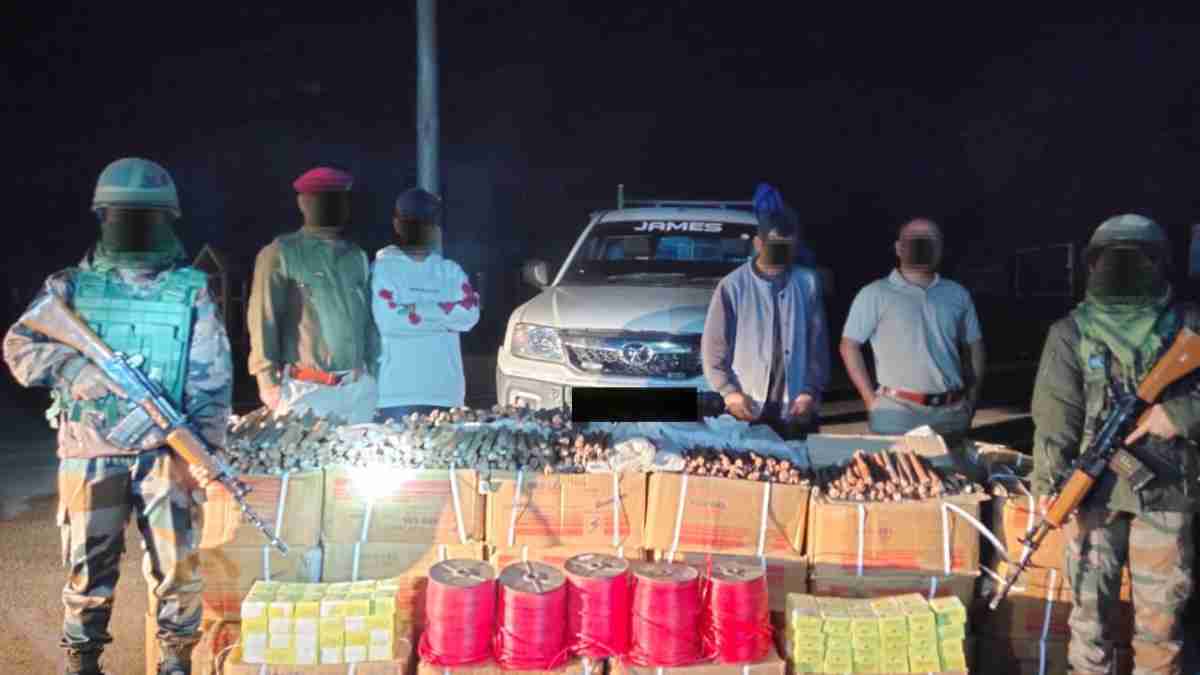In a significant operation near the Indo-Myanmar border, security forces seized a large consignment of explosives reportedly intended for anti-junta resistance forces in Myanmar. The seizure was made on the Serchhip-Thenzawl road in Mizoram on Wednesday, as confirmed by officials familiar with the matter.
Acting on specific intelligence of movement of explosives on road Serchhip-Thenzawl, in #Mizoram, #AssamRifles units under #SpearCorps, & @mizorampolice established a Mobile Vehicle Check Post on 06 Nov 24.
The troops intercepted a vehicle, thoroughly searched it and… pic.twitter.com/s7qjaQVhYk---Advertisement---— SpearCorps.IndianArmy (@Spearcorps) November 7, 2024
Details of the Seizure
- Seized Items: The cache included 9,600 gelatin sticks, 9,400 detonators, and 1,800 meters of Cordtex.
- Arrests: Two men were apprehended while transporting these “war-like stores.”
- Operation: The explosives were discovered after Assam Rifles and Mizoram Police, acting on specific intelligence, set up a checkpoint and intercepted a suspicious vehicle.
Increased Surveillance Along the Indo-Myanmar Border
Assam Rifles, responsible for guarding the Indo-Myanmar border, has intensified monitoring efforts in response to reports of Myanmar’s People’s Defence Force (PDF) attempting to transport illegal materials across the porous border. PDF forces have been actively resisting Myanmar’s junta since the military coup of February 2021.
Also Read: Indian Railways Sets Record With Over 3 Crore Passengers In A Single Day
This is the second notable seizure of explosives intended for Myanmar-based forces. On October 12, Assam Rifles confiscated 39,000 detonators near the Tiau River, and in May, members of the Chin Resistance Force (CRF) were caught smuggling ammunition and tactical equipment across the border.
Rising Smuggling Activities and Border Control Efforts
Authorities report an increase in cross-border smuggling via Mizoram following the Manipur government’s decision to halt vehicle movement across its Myanmar border under the Free Movement Regime (FMR). The FMR allows residents within 16 kilometers of the border to cross without visas, but restrictions were imposed due to rising tensions and illicit activities.
To curb illegal crossings and smuggling of weapons and drugs, the Indian government has initiated border fencing, combining physical and smart barriers. The fencing project has covered approximately 30 kilometers to date, aiming to secure the 1,643-kilometer border shared with Myanmar.
Also Read: Will U.S.-China Trade Tensions Under Donald Trump Propel India As Global Manufacturing Hub?












